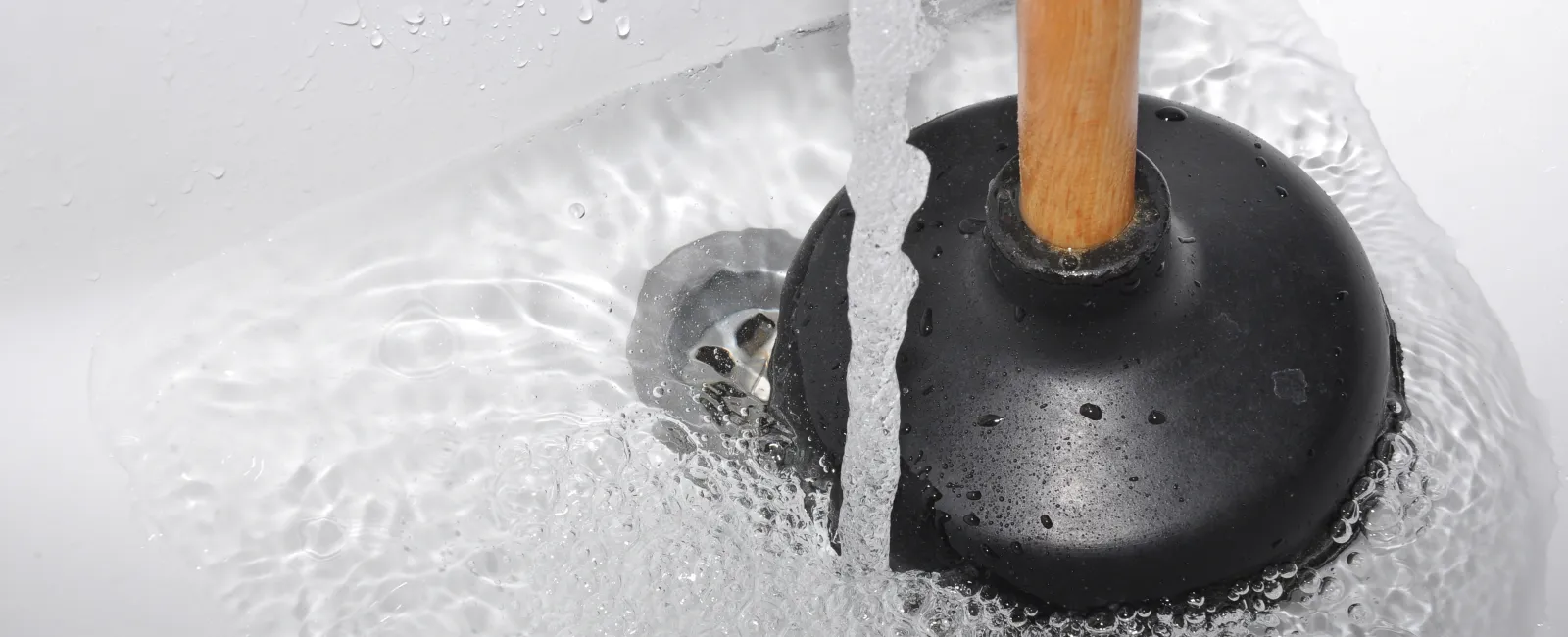A sink that drains slowly is typically caused by clogs from hair, soap scum, toothpaste, grease, or food debris accumulating inside the drain pipe. In bathroom sinks, hair and soap are the most common culprits, while kitchen sinks often slow down due to grease and food residue. Other causes can include a clogged P-trap, improper venting, or mineral buildup in older pipes. Regular cleaning and avoiding grease and debris can help prevent slow drains.
Many homeowners experience slow-draining sinks, and it can be frustrating when water lingers long after you've washed your hands or brushed your teeth. So, why is your sink draining so slowly? The answer often comes down to a mix of buildup, blockages, and minor plumbing problems. Understanding the causes — and how to fix a slow-draining sink — can save you time, money, and future headaches.
Common Causes of a Slow-Draining Sink
Hair, Soap Scum, and Everyday Debris
Slow-draining bathroom sinks in particular are often caused by hair, toothpaste residue, soap scum, and other bathroom debris. Over time, these materials cling to the inside of your drain pipes, narrowing the opening. Eventually, water struggles to flow freely, resulting in a slow sink drain.
In kitchen sinks, grease, food particles, and soap residue play a similar role. If you've ever poured bacon grease down the drain or rinsed off a plate full of greasy food, you've unintentionally started the process that leads to a slow drain.
A Clogged P-Trap
The P-trap — that curved pipe under your sink — plays an important role in your plumbing system. It holds water to block sewer gases from rising into your home. It's also a common spot for clogs. Food particles, hair, and debris settle in this trap over time, restricting water flow and causing your sink to drain slowly.
Venting Issues
Every drain in your home relies on proper venting to allow air into the pipes, balancing pressure and ensuring water flows smoothly. When vents become clogged or improperly installed, water movement slows. In some cases, vent blockages can mimic the symptoms of a clog even when the drain itself is clear.
Mineral Buildup in Older Pipes
If you live in an area with hard water, minerals like calcium and magnesium build up inside your pipes over time. This narrows the diameter of the drain line, slowing water flow. Older homes with galvanized steel pipes are especially vulnerable to this kind of slow-draining sink issue.
How to Fix a Slow-Draining Sink
The good news is that there are several proven methods to fix a slow-draining sink. Whether you prefer a DIY approach or calling a professional, you have options to get your drain flowing freely again.
Start with Boiling Water
A simple first step for many slow drain problems is boiling water. This works best for grease buildup in kitchen sinks. Carefully pour boiling water down the drain in stages, allowing each pour to work its way through the blockage.
Use a Plunger
For more stubborn clogs, a sink plunger can be your best friend. Fill the sink with enough water to cover the plunger cup, then plunge vigorously. This can help dislodge debris stuck in the P-trap or further down the line.
Try a Drain Snake
A drain snake (also called an auger) is a flexible tool you feed into the drain to physically break apart clogs. This is particularly useful if you suspect hair or a solid obstruction is slowing the water flow.
Natural Cleaners: Baking Soda and Vinegar
If you prefer chemical-free solutions, a mixture of baking soda and vinegar can work wonders. Pour half a cup of baking soda into the drain, followed by a cup of vinegar. The fizzy reaction helps break up buildup. Let it sit for 15-30 minutes, then flush with hot water.
When DIY Isn't Enough: Call a Plumber
If you've tried the above methods and your sink still drains slowly despite your efforts, it's time to call a professional plumber at Dalmatian Plumbing in Atlanta. Persistent slow-draining sinks may indicate deeper problems, such as:
Partial blockages further down the drain line
Improperly installed or damaged pipes
Venting issues requiring professional diagnostics
Our licensed plumbers at Dalmatian Plumbing have the tools and expertise to locate and resolve the underlying problem quickly — saving you from further frustration or potential water damage.
Why Is My Bathroom Sink Draining Slowly but Other Drains Are Fine?
A slow-draining bathroom sink can occur even if your kitchen sink or bathtub drain works perfectly. This localized problem often signals a clog near the bathroom sink's drain or P-trap. Hair, soap scum, toothpaste, and beauty products are common culprits. In contrast, a slow drain affecting multiple sinks could point to a bigger issue with your home's main drainage line.
Why Kitchen Sinks Drain Slowly (Even with a Garbage Disposal)
It's easy to assume a garbage disposal prevents clogs, but disposals are actually frequent contributors to slow-draining sinks. If food scraps aren't fully ground up, they accumulate in the drainpipe. Grease and fat solidify on the walls of the pipe, further narrowing the passage. Regular cleaning and avoiding certain foods (like coffee grounds, eggshells, and fibrous vegetables) can prevent slow drain issues in the kitchen sink.
Preventing Future Slow Drains
Once you've solved your current drain problem, prevention becomes key. A few simple habits can keep your drains flowing smoothly:
Use drain screens to catch hair and food particles
Avoid pouring grease, oils, and fats down the drain
Flush drains with hot water weekly to break up minor buildup
Clean the P-trap periodically if you notice sluggish drainage
Use enzymatic drain cleaners (plumber-approved) for regular maintenance
Signs You Need a Plumber (Not Just a Quick Fix)
Sometimes, a slow-draining sink is a symptom of a more serious issue. If you notice any of the following, it's wise to skip DIY fixes and call a professional:
Slow drains throughout your house (not just one sink)
Gurgling sounds from the drain
Foul odors coming from the sink
Water backing up into other fixtures when you use the sink
Recurring clogs that keep returning after temporary fixes
These can indicate problems like sewer line blockages, venting issues, or deteriorating pipes — all of which require expert diagnosis and repair.
Professional Drain Cleaning: Is It Worth It?
If fixing your slow-draining sink feels like a constant battle, professional drain cleaning could be your best investment. Plumbers use specialized equipment like hydro jetting, which blasts high-pressure water through your pipes, removing years of buildup in minutes. This is especially helpful for older homes or properties with chronic slow drains.
Final Thoughts: Don't Ignore a Slow-draining Sink
A slow drain might seem like a minor inconvenience, but it's often a warning sign that shouldn't be ignored. Whether it's hair, soap, grease, or even a bigger plumbing issue, addressing a slow-draining sink early can prevent water damage, foul odors, and even structural problems in your home.
If your sink drains slowly despite your best efforts, it's time to call Dalmatian Plumbing. Knowing why your sink is draining so slowly — and acting quickly — keeps your plumbing system healthy and your home running smoothly.
Need Professional Help? Contact a Licensed Plumber at Dalmatian Plumbing Today
If you've tried everything and still have a slow-draining sink, don't wait for the problem to get worse. Professional plumbers have the expertise and advanced tools to resolve the issue once and for all. Whether it's a clogged P-trap, venting problem, or buildup deep within your pipes, our experienced technicians at Dalmatian Plumbing can restore your drains to full function — fast. So don't wait — call Dalmatian Plumbing today to fix your drain.


